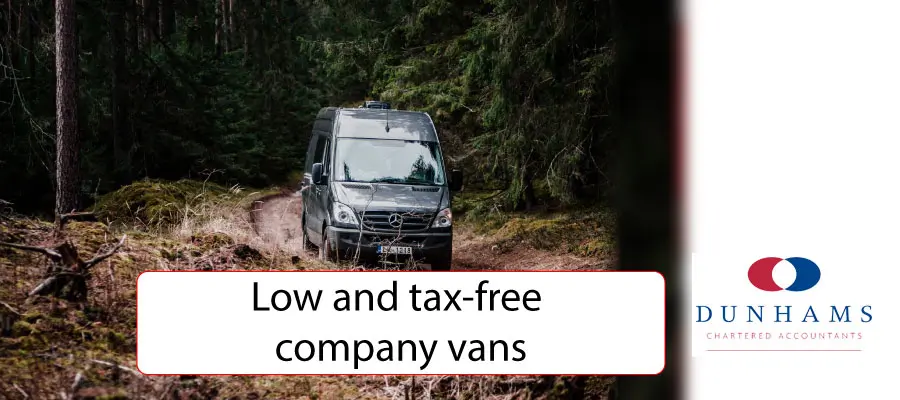
Low and tax-free company vans
Posted on: 25-09-2023
Low and tax-free company vans
If your company provides a van for use by an employee or director it usually counts as a taxable benefit in kind. However, the rules which determine the tax and NI position are tricky. What do you need to know?

Van benefit charge
If you drive an employer-provided van which counts as a taxable benefit in kind for 2023/24, the amount on which you’ll be taxed and your employer will pay Class 1A NI is £3,600. This is proportionately reduced if it was only available for part of the year or was temporarily not available for private use for a period of 30 or more consecutive days. If the employer also pays for fuel for private journeys there’s a separate taxable benefit of £688, also proportionately reduced for periods when the van was not available for 30 days or more.

What are the tax and NI costs?
If you’re a higher rate taxpayer chargeable to tax on van and fuel benefits for the whole of 2023/24, you’ll pay tax of £1,715 ((£3,600 + £688) x 40%). Your employer must pay Class 1A NI of £592 ((£3,600 + £688) x 13.8%).
If there’s “restricted private use” which meets HMRC conditions, there’s no taxable benefit at all.
Restricted private use
The restricted private use condition is met if the employer only permits an employee or director to drive the van for business purposes.
Unlike the position for company cars, ordinary commuting (travel between home and a normal place of work) in an employer-provided van counts as a business journey. In other words, use of a van for that purpose does not trigger a taxable charge. The restricted private use condition is met even if there is private mileage but it isn’t significant.
Significant or not
The legislation doesn’t define what counts as “significant” private mileage, but helpfully HMRC’s internal guidance says it isn’t significant in any of the following circumstances:
- it’s not for more than a few days over the whole tax year
- generally it’s not for more than two or three consecutive days
- it’s intermittent and irregular
- there’s no pattern to it.
HMRC gives examples of the type of private use that it considers insignificant and that which it doesn’t.
Meeting the conditions
In practice it’s difficult for HMRC to check with any accuracy for private use. Nevertheless, you should take a reasonable approach and stick as closely as possible to HMRC’s guidelines.
Ask all employees and directors who use the van for whatever purpose to keep a log of their mileage. That way you’ll be able to show HMRC, if required to, that there’s been no significant private use, assuming that’s the case. You should collate mileage data for each van into a single record. Also, have a clear written user policy that the van isn’t to be used for private journeys except where they count as insignificant.
If you would like any assistance with any of these points.
